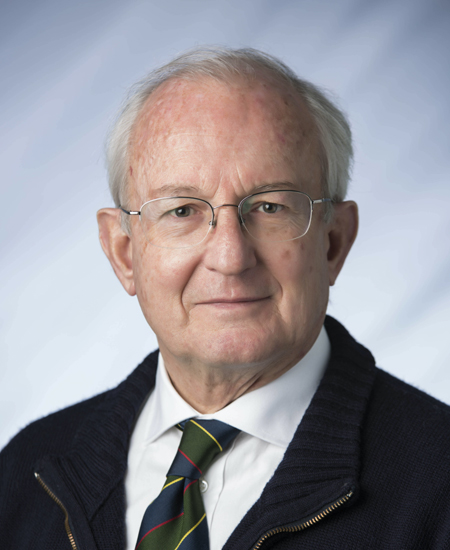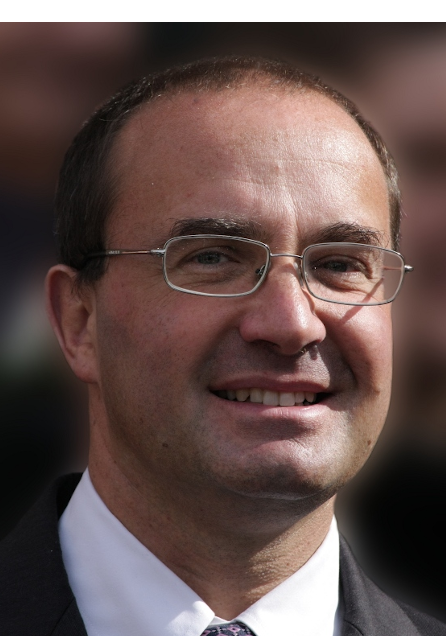
ACM SIGMETRICS / IFIP PERFORMANCE 2024
Venice, Italy
June 10-14, 2024

ACM SIGMETRICS / IFIP PERFORMANCE 2024
Venice, Italy
June 10-14, 2024
Our Keynotes sessions serve as a focal point for thought-provoking discussions on cutting-edge topics, featuring esteemed speakers who offer unique insights into the challenges and opportunities shaping the future of performance analysis. Join us as we delve into groundbreaking research, innovative methodologies, and emerging trends that are driving the evolution of performance evaluation.
The talk will reflect on the use of performance evaluation methodologies in different areas of distributed computing and networking, drawing from the speaker’s experience.
The trajectories of the focus of performance analysis research will be discussed, also trying to identify promising new research topics.
Research professor,IMDEA Networks Institute, Spain and Emeritus Professor of the Politecnico di Torino, Italy.

Marco Ajmone Marsan is a research professor at the IMDEA Networks Institute in Leganés, Spain and an Emeritus Professor of the Politecnico di Torino, Italy. He has been at the Politecnico di Torino for most of his career, with an interruption from 1987 to 1990, when he was at the University of Milan.
Marco Ajmone Marsan is a Fellow of the IEEE, a member of the Academy of Science of Torino, and a member of Academia Europaea. He was qualified as “ISI highly cited researcher” in computer science. He received a honorary degree from the Budapest University of Technology and Economics.
Marco Ajmone Marsan was the Vice-Rector for Research, Innovation and Technology Transfer at the Politecnico di Torino and the Director of the Istituto di Elettronica e Ingegneria dell'Informazione e delle Telecomunicazioni of the Italian National Research Council.Many organizations recognize non-terrestrial networks (NTNs) as a key component to provide cost-effective and high-capacity connectivity in future 6th generation (6G) wireless networks. Despite this premise, there are still many questions to be answered for proper network design, including those associated with latency and coverage constraints. In this talk, after reviewing research activities on NTNs, we present the characteristics and enabling technologies of NTNs in the 6G landscape, and shed light on the challenges in the field that are still open for future research. We discuss the potential of multi-layered hierarchical networks, i.e., the orchestration among different aerial/space platforms, including High Altitude Platforms (HAPs) and satellites co-operating at different altitudes, and provide guidelines on the optimal working point(s) for which it is possible to achieve a good compromise between improved system flexibility and network performance, with respect to a baseline standalone deployment. We also present some results about the optimization of offloading strategies for data processing from mobile terrestrial nodes to aerial platforms and discuss the relevant tradeoffs.
Full professor, University of Padua, Italy.

Michele Zorzi was born in Venice, Italy, on December 6th, 1966. He received the Laurea Degree and the Ph.D. in Electrical Engineering from the University of Padova, Italy, in 1990 and 1994, respectively.
During the Academic Year 1992/93, he was on leave at the University of California, San Diego (UCSD), attending graduate courses and doing research on multiple access in mobile radio networks.
In 1993, he joined the faculty of the Dipartimento di Elettronica e Informazione, Politecnico di Milano, Italy. After spending three years with the Center for Wireless Communications at UCSD, in 1998 he joined the School of Engineering of the University of Ferrara, Italy, where he became a Professor in 2000.
Since November 2003, he has been on the faculty at the Information Engineering Department of the University of Padova. His present research interests include performance evaluation in mobile communications systems, random access in mobile radio networks, ad hoc and sensor networks, energy constrained communications protocols, and broadband wireless access.
Dr. Zorzi was the Editor-In-Chief of the IEEE Wireless Communications Magazine in 2003–2005, is currently the Editor-In-Chief of the IEEE Transactions on Communications, and serves on the Editorial Boards of the IEEE Transactions on Wireless Communications, the Wiley Journal of Wireless Communications and Mobile Computing and the ACM/URSI/Kluwer Journal of Wireless Networks.
He was also guest editor for special issues in the IEEE Personal Communications Magazine (“Energy Management in Personal Communications Systems,” Jun. 1998) and the IEEE Journal on Selected Areas in Communications (“Multi-media Network Radios,” May 1999, and “Underwater Wireless Communications and Networks,” to be published in 2008). He is a Fellow of the IEEE.
Modern data centers are marvels of scale, technology, and complexity. Putting one together -- and filling it with equipment of the right type at the right time -- requires impressive choreography across a broad range of disciplines and processes, many of which are controlled or directed by automated systems. What should those systems measure? How should they make tradeoffs? What issues cause the most problems? This talk explores some of these questions, and highlights the central importance of asking the right quantitative questions and the metrics that underlie them.
Principal Software Engineer, Technical Infrastructure, Google.
 - small.jpg)
John Wilkes has been at Google since 2008, where he is working on automation for building warehouse scale computers, with a current focus on delivering network capacity. Before this, he worked on cluster management for Google's compute infrastructure (Borg, Omega, Kubernetes). He is interested in far too many aspects of distributed systems, but a recurring theme has been technologies that allow systems to manage themselves. He received a PhD in computer science from the University of Cambridge, joined HP Labs in 1982, and was elected an HP Fellow and an ACM Fellow in 2002 for his work on storage system design. Along the way, he’s been program committee chair for SOSP, FAST, EuroSys and HotCloud, and has served on the steering committees for EuroSys, FAST, SoCC and HotCloud. He's listed as an inventor on 50+ US patents, and has an adjunct faculty appointment at Carnegie-Mellon University. In his spare time he continues, stubbornly, trying to learn how to blow glass.